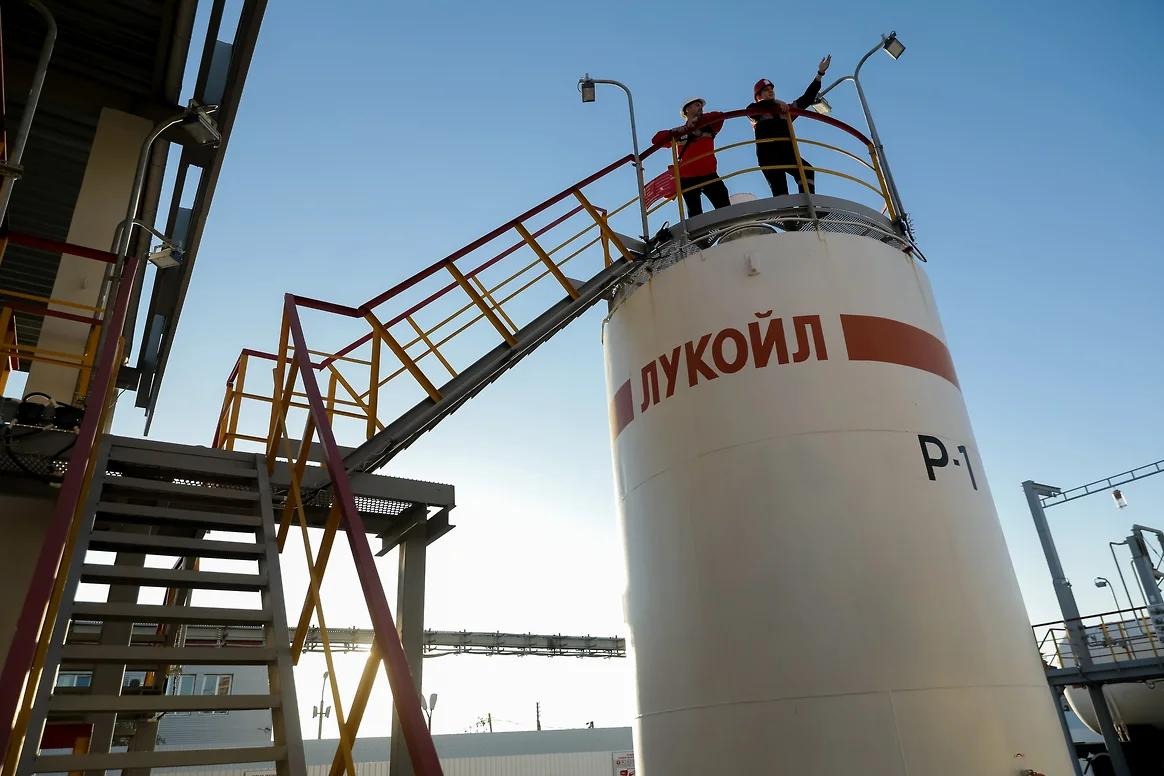PUTIN NAMES HIS CABINET…
PUTIN NAMES HIS CABINET…
President Vladimir Putin named the bulk of his new cabinet yesterday after a last-minute meeting with Mikhail Kasyanov, who the State Duma had approved as prime minister the previous day. A vast majority of the previous cabinet members retained their posts, including the “power ministers” (including the defense, interior and emergency situations ministers and the Federal Security Service director). While the new faces in the cabinet include some “liberals” from among the informal St. Petersburg team to which Putin himself once belonged, the key levers of power will be held by Kasyanov, whom many observers link to the “Family,” the group of power-brokers who made up former President Boris Yeltsin’s inner circle.
The main victory for the “liberals” was the appointment of Aleksei Kudrin as finance minister, with the simultaneous rank of deputy prime minister. Kudrin, a veteran member of the old St. Petersburg team headed by Anatoly Chubais, had been serving as a deputy finance minister. However, German Gref, the deputy property minister who also heads the Center for Strategic Research, Putin’s think-tank, was appointed minister for economic development and trade. While this was formally a promotion, Gref, a St. Petersburg team veteran who has been drafting a program for Russia’s development which includes radical economic reforms, did not receive the rank of deputy prime minister. Given that Kasyanov has openly given hints that he has disdain for Gref’s program, Gref’s lack of status in the new cabinet suggests his “promotion” was in fact the opposite (Kommersant, Vedomosti, May 19; see also the Monitor, May 18). Aleksandr Pochinok was moved from his post as tax minister to the post of labor minister, replacing Sergei Kalashnikov, a member of Vladimir Zhirinovsky’s LDPR. Gennady Bukaev was named tax minister. Bukaev was formerly head of the Moscow government’s tax service, and, according to one report, is known for his loyalty to his superiors and his “cold relations with Anatoly Chubais” (Vremya novostei, May 19). This could be seen as a concession to Moscow Mayor Yuri Luzhkov, but was more likely a way of placing another check on the St. Petersburg team.
The fate of Viktor Kaluzhny, Russia’s fuel and energy minister, has not yet been decided. Last year, Kaluzhny and then First Deputy Prime Minister Nikolai Aksenenko, both widely viewed as allies of the “Family,” sacked Dmitri Savelev, president of the state oil pipeline monopoly Transneft, while Putin, then prime minister, was attending the Asian summit in New Zealand (see the Monitor, September 17, 1999). Savelev was appointed Transneft chief in 1998 by then Prime Minister Sergei Kirienko. Since Savelev’s ouster last year, the St. Petersburg team and its allies–including the Union of Right-Wing Forces–have made Kaluzhny’s removal one of their chief goals. Aksenenko, who lost his first deputy prime minister’s title earlier but retained his job as railways minister, will remain railways minister in the new cabinet.
Kasyanov–and thus, in the view of some observers, the “Family”–achieved another victory in yesterday’s shake-up: Dmitri Kozak, head of the cabinet’s administration, was replaced by Igor Shuvalov, who formerly headed the Russian Federal Property Fund, who was described today as being “close” to Kasyanov and Kremlin administration chief Aleksandr Voloshin. The head of the cabinet’s “apparat” is a key post, analogous to the post of Kremlin administration chief. Vladimir Babichev, who held the post under Prime Minister Viktor Chernomyrdin, was one of Russia’s most powerful power brokers.
As the Monitor has reported, Kozak was apparently tapped to become Russia’s new prosecutor general, but Putin changed his mind at the eleventh hour and appointed Vladimir Ustinov, the acting prosecutor general, to the post (see the Monitor, May 18). The Gazeta.Ru news/analytical website, citing two anonymous sources, reported yesterday that on May 16, after Putin had signed documents appointing Kozak and Kozak had been informed of his promotion, Aleksandr Voloshin paid the president a visit–accompanied, according to “some” of Gazeta.Ru’s sources, by Boris Berezovsky–and Ustinov’s candidacy was “forced” on Putin. As Gazeta.Ru put it: “If this is true, it means that Putin is not so independent and can be coerced into making decisions that are crucial for the ‘family'” (Russian agencies, May 18).
…AND APPOINTS REPRESENTATIVES TO SEVEN NEW “DISTRICTS”.


